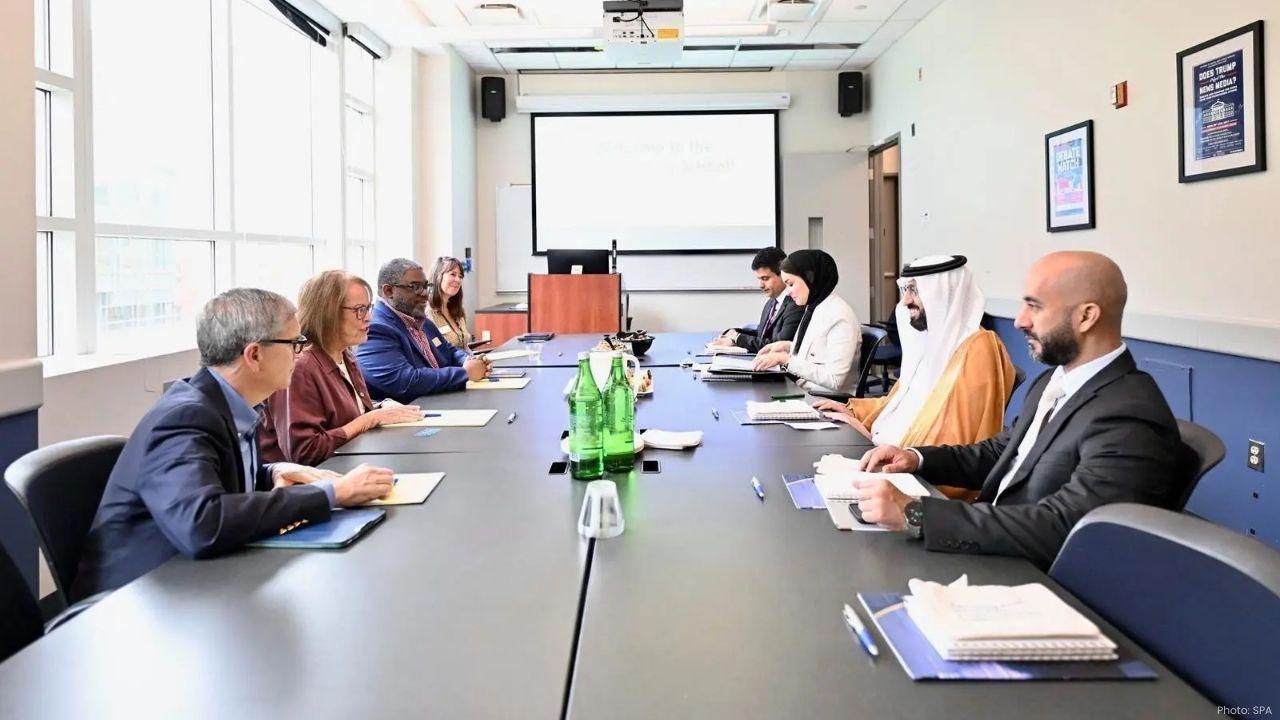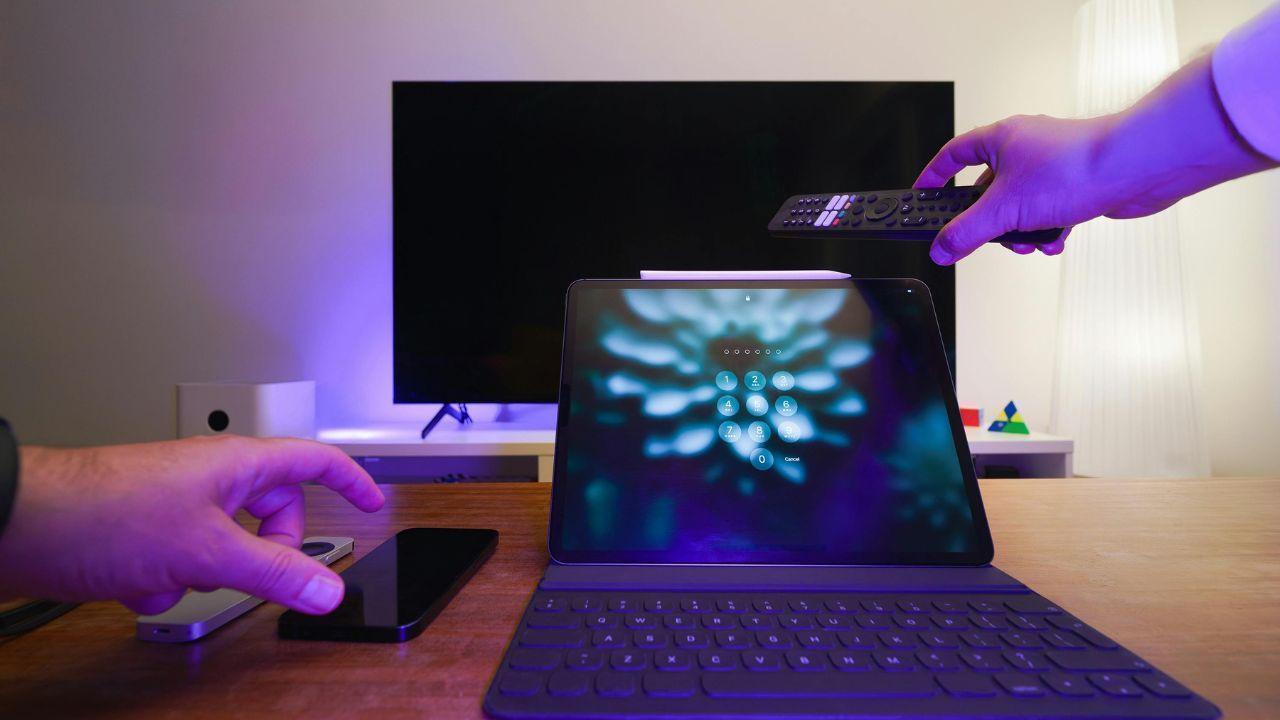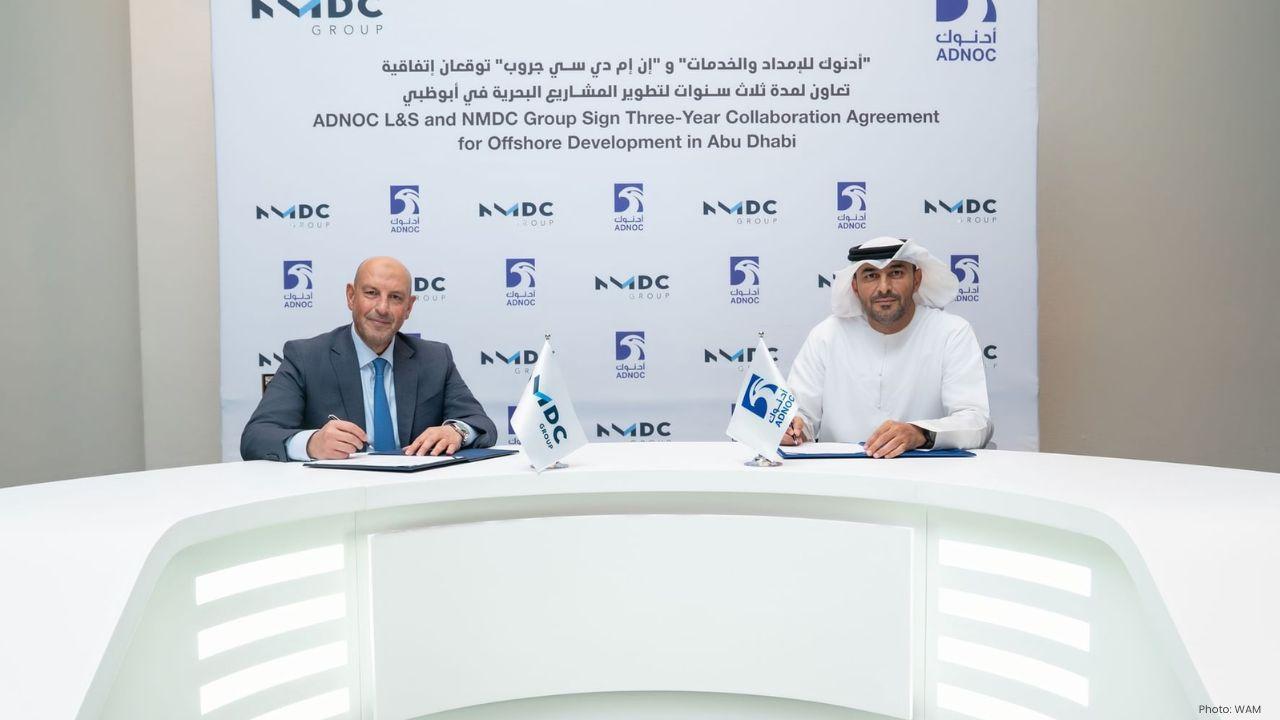
Post by : Mumtaaz Qadiri
The Chief Executive Officer of the Saudi Food and Drug Authority (SFDA), Dr. Hisham Aljadhey, recently took part in an important global scientific event. He joined the 41st annual meeting of the International Society for Pharmacoepidemiology (ISPE), which is considered one of the leading gatherings for experts in medicine, drug safety, and public health. On the sidelines of this meeting, Dr. Aljadhey also held a number of important discussions with top American universities and academic institutions. These talks were not just formal meetings, but part of a larger plan to strengthen cooperation in science, research, and regulation between Saudi Arabia and the United States.
Purpose of the Meetings
The main goal of Dr. Aljadhey’s meetings was to open new opportunities for the Saudi Food and Drug Authority to learn from advanced global experiences and to exchange knowledge with top international experts. By building closer ties with leading American universities, the SFDA hopes to improve its role as a scientific and regulatory body in Saudi Arabia. This is very important because the authority plays a central role in protecting public health by ensuring the safety of food, drugs, and medical products. Dr. Aljadhey made it clear that such partnerships can help the authority adopt modern technologies, improve safety standards, and keep pace with global scientific progress.
Visit to Johns Hopkins University
One of the most important stops in his trip was at Johns Hopkins University, a world-famous institution in the United States. During this visit, Dr. Aljadhey met with Professor Keisha Porter, who is the dean of the Bloomberg School of Public Health, along with several faculty members. The discussions during this meeting were very detailed and covered many aspects of healthcare and research.
The university shared its advanced experiences in clinical studies, which are studies that test the effectiveness and safety of medicines and treatments on patients. They also discussed the use of modern technologies and digital tools in this field. This is important because digital tools can make the process of drug testing faster, safer, and more reliable. Another key point discussed was the use of artificial intelligence (AI) in the area of drug safety and regulatory sciences. AI is now being used around the world to analyze big data, identify risks quickly, and predict possible health issues. For the SFDA, learning about these applications is vital to bring Saudi Arabia’s regulatory system closer to global best practices.
Visit to George Washington University
Another important meeting took place at George Washington University, where Dr. Aljadhey sat down with Professor Kathryn Newcomer, the director of the Trachtenberg School of Public Policy and Public Administration. The focus of this meeting was slightly different but equally important. It centered on public policy and regulatory challenges, which are the rules and laws that affect how drugs, foods, and medical systems are managed.
The discussion touched on the challenges faced in health systems, pharmaceutical regulations, and food safety. These are areas where both Saudi Arabia and the United States share common concerns. By having such open conversations, both sides were able to see how academic research can support stronger and more effective policies. This also created an opportunity for new academic and research cooperation that can benefit not only Saudi Arabia but also international scientific communities.
Importance of Academic Cooperation
Dr. Aljadhey emphasized in all his meetings that the Saudi Food and Drug Authority places a very high value on its partnerships with academic and research institutions. He explained that one of the main strengths of the authority is that its regulatory decisions are not based on assumptions but on solid scientific foundations. These foundations are supported by specialized research, studies, and expert opinions. By collaborating with world-leading institutions such as Johns Hopkins and George Washington University, the SFDA can further strengthen its scientific credibility and decision-making process.
Alignment with Saudi Vision 2030
Another important part of Dr. Aljadhey’s message was how all these efforts connect with Saudi Vision 2030, the national plan to transform the Kingdom’s economy and society. The Health Sector Transformation Program, which is one of the main initiatives under Vision 2030, aims to build a more efficient, modern, and innovative healthcare system. By adopting global best practices and introducing modern technologies like artificial intelligence into regulatory processes, the SFDA is making direct contributions to this vision.
Strengthening Drug and Food Safety
For ordinary citizens and residents in Saudi Arabia, the impact of these international partnerships may not be immediately visible, but they are very important. Stronger scientific cooperation means that the SFDA will be better equipped to ensure that the food, medicines, and medical devices available in the Kingdom are safe and effective. This reduces risks to public health, increases trust in the healthcare system, and ensures that Saudi Arabia keeps up with global scientific progress.
Role of Digital Tools and AI
One of the highlights of these meetings was the focus on digital tools and artificial intelligence. Around the world, AI is being used to monitor drug safety, analyze reports of side effects, and even predict future health challenges. For example, AI can quickly scan millions of health records and detect if a certain medicine is causing unusual problems. By learning how to apply these tools, the SFDA can make faster and more accurate decisions. This represents a big step forward in modernizing regulatory systems and ensuring higher levels of safety for the Saudi population.
Future of Research Collaboration
The meetings also opened the door for future joint research projects between Saudi Arabia and U.S. universities. Such collaborations may involve training programs, exchange of experts, joint studies on drug safety, or even workshops on new technologies. This will not only benefit the SFDA but also provide Saudi students and researchers with new opportunities to learn and contribute on the international stage. Over time, these partnerships can create a stronger global reputation for Saudi Arabia in the fields of public health, pharmaceuticals, and food safety.
Dr. Hisham Aljadhey’s visit to the United States was not just about attending a conference but also about building lasting scientific and academic relationships. His meetings with Johns Hopkins University and George Washington University highlighted the importance of combining strong research with regulatory decision-making. By focusing on modern technologies, artificial intelligence, and public policy, the Saudi Food and Drug Authority is preparing itself to face future challenges with confidence.
This visit reflects the SFDA’s commitment to science, cooperation, and innovation, all of which are key elements in Saudi Arabia’s journey under Vision 2030. For the people of the Kingdom, these efforts will mean safer medicines, better food systems, and a more reliable healthcare sector.
Saudi drug authority, Scientific research cooperation










NMDC Group And ADNOC L&S Sign Three-Year Deal For Offshore Work
NMDC Group and ADNOC Logistics & Services sign a three-year deal to deliver maritime services for of

Six Miners Trapped After Earthquake Hits Coal Mine In China
A mining-related earthquake struck a coal mine in Heilongjiang, China, trapping six miners undergrou

Train Collides With Bus In Mexico Killing 10 And Injuring Many
At least 10 dead and 41 injured after a train hit a bus at a rail crossing in Mexico. Authorities co

UAE Olympic Football Team Qualifies For AFC U-23 Asian Cup Finals
UAE Olympic football team qualifies for AFC U-23 Asian Cup finals in Saudi Arabia despite 3-2 loss t

Apple Launches iPhone Air With Thinnest Design & Pro Performance
Apple unveils the new iPhone Air, its thinnest model with pro performance, multiple colors, large st

Al Wakrah Wins French Arabian Breeders’ Challenge Sprint Again
Al Wakrah, trained by Jean de Mieulle, wins French Arabian Breeders’ Challenge Sprint in France, mar